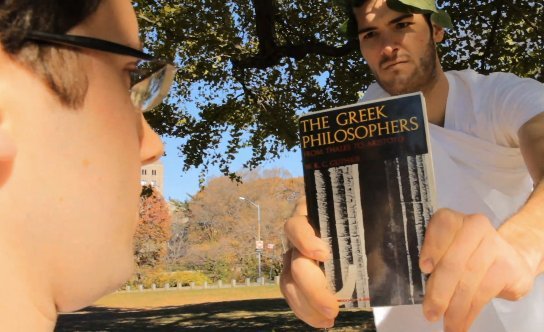One of my coworkers always says that part of life is how you tell the story. When her daughter got into college, she was so happy. While not an Ivy, it was a wonderful school and she was so proud. However, her daughter could have also told the story as one of being rejected from schools like Columbia and Yale rather than the story of being so lucky as to get into such a top-ranked school.

But to tell it another way, maybe the Greeks of that age should be seen as the right-wing assimilationists of today. Today we see some on the right pushing English as the national language, Christianity as the national religion (or at least identity), and the general idea that the dominant “white American” culture is better and that people should assimilate to it if they want to advance in our society.
In that light, it’s possible to see the Maccabees as those defending the cultural differences of minority groups against those who would assail their culture: the ones providing services in multiple languages; the ones advocating against cultural racism in hiring practices and protecting those who don’t fit the dominant culture’s opinion of what an educated or qualified person looks and sounds like; the ones protecting all our freedom to believe and worship and keep kosher as our own conscience dictates.
This view seems evident in the latest Maccabeats video, Purim Song. In the middle of the video, the villain Greeks from their first video show up at the door. The person who answers the door tells them that they have the wrong house (possibly wary of being “assailed” again), but one of the Greeks says, “wait, we’re friends for Purim” and they’re welcomed in to celebrate. It shows the distinct difference between guarding against those who see your culture as lower-class, uneducated, or simply that you’d be better off as people if you adopted the dominant culture and embracing openness and welcoming all those who come to your table as friends to celebrate with you.
While the Purim Song music video is just that, a music video, it’s important for us all to make sure we turn our stories upside-down every once in a while. It’s understandable to rest on how we prefer our story to go and treat people accordingly. However, while understandable, our charge is to challenge that lest we miss out on opportunities to make our world better – even as we interact with a dominant culture or differing political movement that we might feel doesn’t embody our values.
This post has been contributed by a third party. The opinions, facts and any media content are presented solely by the author, and JewishBoston assumes no responsibility for them. Want to add your voice to the conversation? Publish your own post here. MORE

